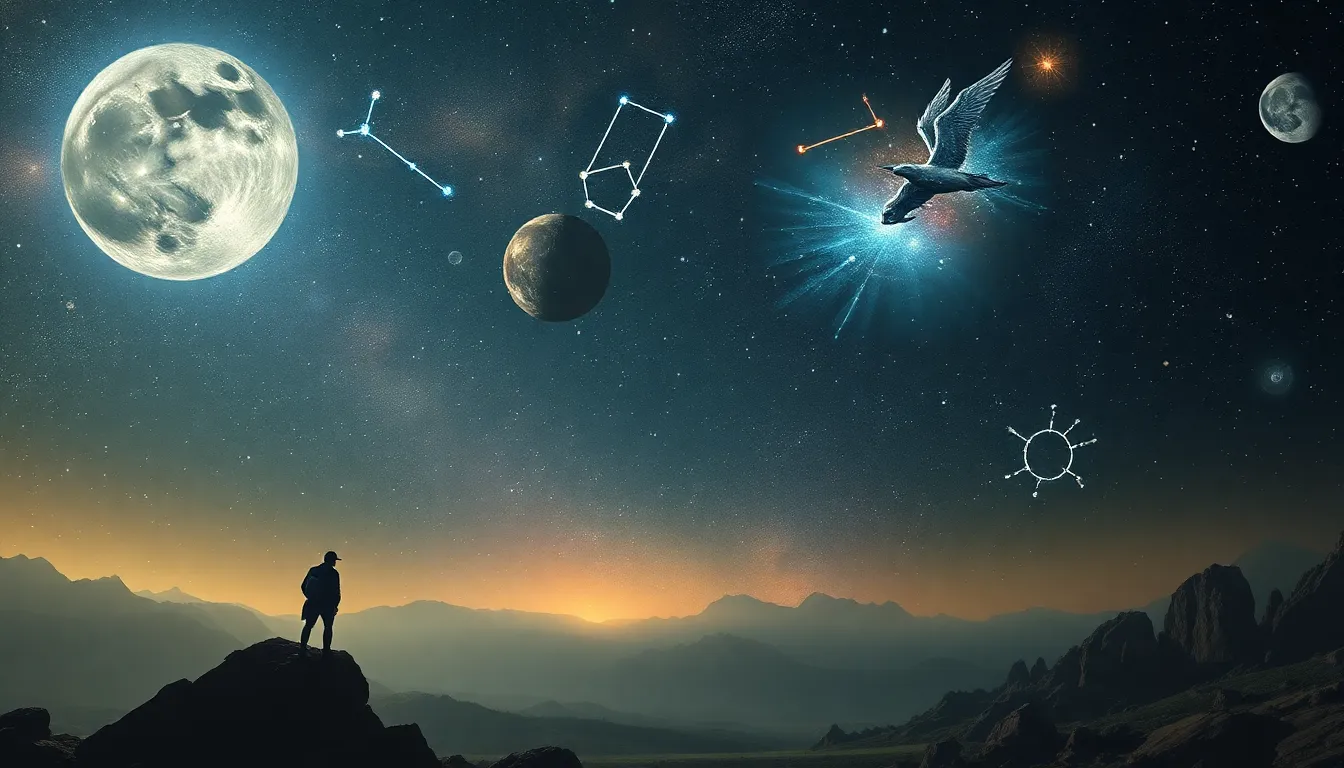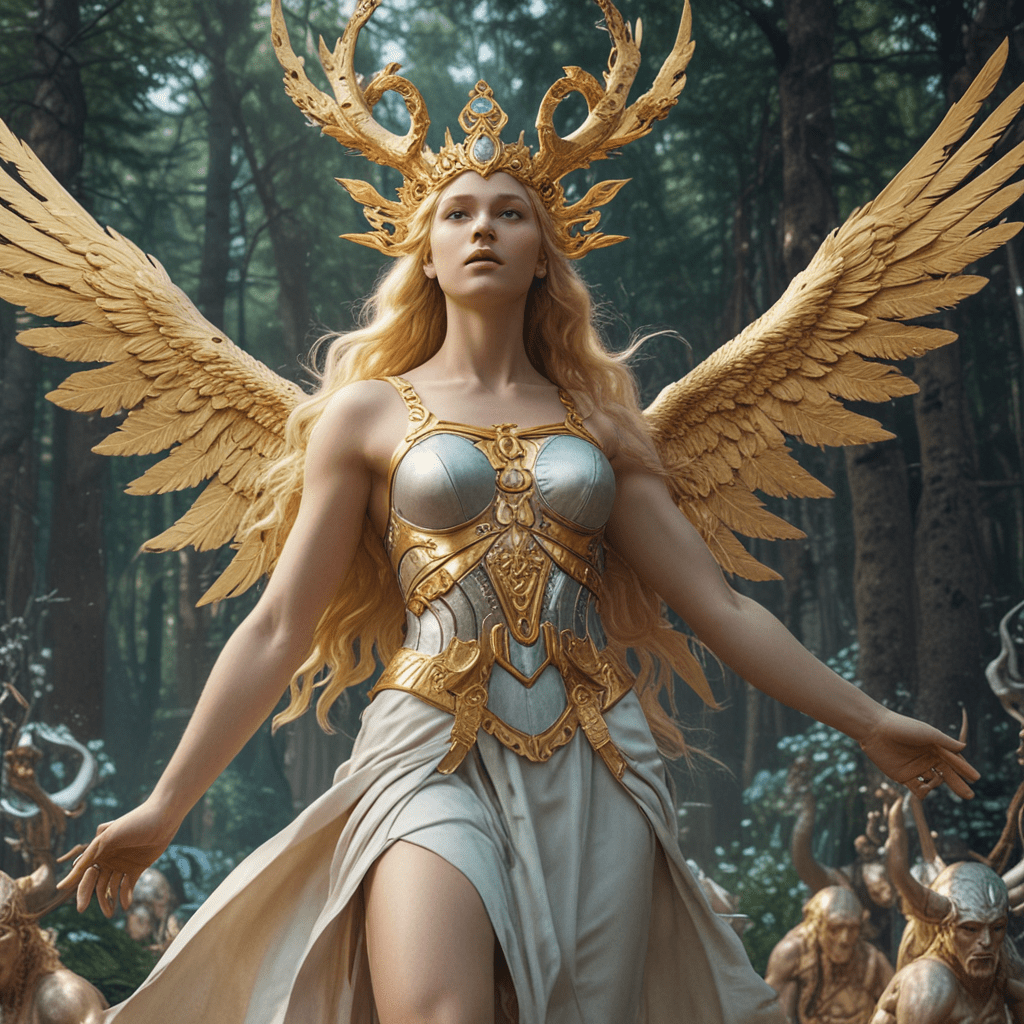Beyond the Horizon: The Mythical Origins of Constellations
Introduction: The Allure of the Night Sky
The night sky has captivated humanity for millennia, serving as a canvas for imagination and a source of guidance. Constellations, the patterns formed by stars, have played a significant role in various cultures, providing a sense of orientation and meaning. Beyond their astronomical significance, these celestial patterns are steeped in mythology and storytelling, revealing the rich tapestry of human experience and belief.
Ancient Civilizations and Their Celestial Narratives
Throughout history, ancient civilizations have looked up at the night sky and constructed narratives based on what they saw. Each culture interpreted the stars in unique ways, often reflecting their values, beliefs, and environment.
- Mesopotamia: The Sumerians were among the first to map the night sky, identifying constellations that represented their gods and goddesses. For them, the stars were a divine blueprint, guiding their agricultural practices and religious observances.
- Egypt: The Egyptians associated the stars with their deities, most notably Osiris and Isis. The alignment of pyramids and temples with celestial bodies illustrates their belief in the stars as a bridge between the earthly and the divine.
- Greece: Greek mythology is perhaps the most well-known source of constellation stories. Figures like Zeus, Perseus, and Hercules were immortalized in the stars, serving as moral lessons and cultural icons.
- China: Chinese astronomy has a long history, with constellations linked to agricultural cycles and folklore. The Chinese zodiac, consisting of twelve animals, is a prime example of celestial narratives influencing societal structure.
The Role of Mythology in Naming Constellations
Mythology has played a pivotal role in the naming of constellations. Many star patterns are directly derived from ancient tales, giving them a human touch and deepening their significance.
For example:
- Orion: Named after a great hunter in Greek mythology, Orion is one of the most recognizable constellations. His story of pursuit and tragedy is written in the stars.
- Cassiopeia: This constellation represents a queen from Greek mythology, known for her beauty and vanity. The ‘W’ shape of the constellation mirrors her throne.
- Ursa Major: Often associated with the story of Callisto, a nymph transformed into a bear, this constellation reflects themes of transformation and loss.
Cultural Variations: How Different Societies Interpret the Stars
While many cultures share similar star patterns, their interpretations can vary dramatically. This divergence showcases the richness of human imagination.
Western vs. Eastern Mythologies:
- Western mythology often emphasizes individual heroes and deities, leading to constellations named after figures from Greek and Roman traditions.
- In contrast, Eastern mythologies, such as those from China and India, frequently incorporate broader cosmological concepts, often intertwining stars with philosophical ideas.
Indigenous Interpretations:
Indigenous cultures worldwide have their own unique interpretations of constellations, often linking them to creation stories, seasonal changes, or moral teachings. For example:
- Many Native American tribes view the Pleiades as a group of sisters, each with her own story.
- In Aboriginal Australian cultures, the Southern Cross is a crucial navigational tool, tied to their Dreamtime stories.
The Influence of Astronomy on Mythological Stories
As civilizations observed celestial events, these occurrences often shaped their mythological narratives. The relationship between astronomy and mythology is both intricate and profound.
- Eclipses: Solar and lunar eclipses were often viewed as omens, leading to stories about gods battling or significant changes in leadership.
- Solstices: The changing of seasons, marked by solstices, influenced agricultural myths, with many cultures celebrating festivals aligned with these celestial events.
Constellations as Tools for Navigation and Agriculture
Beyond mythology, constellations have served practical purposes, particularly in navigation and agriculture. Ancient mariners used the stars to guide their journeys across oceans, while farmers relied on celestial patterns to determine planting and harvesting times.
- Navigation: The North Star, or Polaris, has been a critical reference point for navigation, helping travelers find their way in the night.
- Agriculture: Many cultures developed calendars based on stellar observations, dictating when to sow seeds and harvest crops.
The Evolution of Constellations Through Time
Constellations are not static; they evolve over time, reflecting cultural shifts and exchanges. The modernization of astronomy has led to the redefinition of many constellations and the incorporation of new findings.
Cultural exchange, particularly through trade and exploration, has also influenced celestial mythology, blending stories from different traditions.
Modern Interpretations and the Persistence of Myth
Even in contemporary society, the allure of constellations and their myths persists. Literature, film, and art continue to draw inspiration from these ancient narratives, reviving interest in celestial stories.
- Books and films often reference constellations, using them as symbols for dreams and aspirations.
- Artistic representations of constellations remain popular, merging science with creativity.
Scientific Perspectives on Constellations and Their Origins
The transition from mythological to scientific understandings of constellations marks a significant evolution in human thought. While ancient cultures viewed constellations as divine symbols, modern astronomy provides a more analytical approach.
Constellations now serve as essential tools in understanding the universe, helping astronomers categorize stars and track celestial phenomena.
Conclusion: The Enduring Legacy of Celestial Myths
The mythical origins of constellations remind us of our shared human experience. These stories connect us to the cosmos and preserve cultural heritage, showcasing the power of storytelling. As we continue to gaze at the stars, we carry with us the legacy of our ancestors, a testament to their creativity and belief in the mysteries of the universe.




